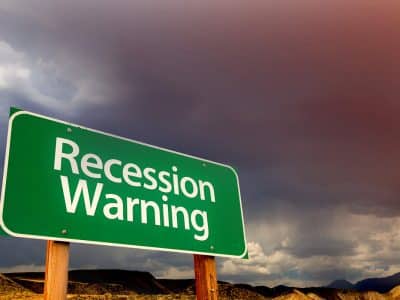
For British expats, Spain offers one of the most attractive real estate markets in Europe, particularly for those looking to invest in rental properties. With its booming tourism industry, beautiful landscapes, and favorable rental yields, buying a property in Spain to rent out can provide excellent returns. This guide will walk you through the key considerations, legal aspects, and best locations for investment.
Why British Expats Are Investing in Spanish Property
Spain has long been a popular destination for British expats, thanks to its warm climate, proximity to the UK, and high quality of life. In addition to these lifestyle benefits, property investment in Spain offers:
- High rental demand due to millions of tourists visiting every year, especially in coastal areas like Costa del Sol and Costa Blanca.
- Potential for capital appreciation, as property values in certain regions like Madrid, Barcelona, and Valencia have been steadily increasing.
- Attractive yields from both short-term holiday rentals and long-term residential leases, particularly in major cities and popular tourist destinations.
Types of Properties for Renting Out
When it comes to choosing a property to rent out, understanding the market and tenant preferences is essential. Here’s a breakdown of the most popular property types for renting out in Spain:
Apartments
Apartments are ideal for city locations like Madrid, Barcelona, and Valencia. They cater to both tourists and long-term expats, providing a flexible option for rentals. City-center apartments are often in high demand among professionals and students.
Villas
Villas, especially in coastal areas such as the Costa del Sol and Ibiza, are a popular choice for holiday rentals. They offer space and luxury, making them perfect for families and groups during peak tourist seasons. Villas tend to command higher rental incomes but may require more upkeep.
Townhouses
Townhouses are a middle-ground option, often found in smaller towns and suburban areas. They attract long-term renters, especially families or retirees looking for quiet yet accessible areas.
Step-by-Step Guide to Buying a Rental Property in Spain
Here are the steps involved in buying a property in Spain for rental purposes:
1. Obtain a Spanish NIE Number
To buy property in Spain, you will need a NIE number (Número de Identificación de Extranjeros). This is essential for legal and tax purposes.
2. Secure Financing
Many Spanish banks offer mortgages to non-residents, typically covering up to 70% of the property’s value. Make sure to factor in additional costs like taxes and notary fees, which can total 10-15% of the purchase price.
3. Research the Market
It’s important to research local property prices and rental yields. Some regions like Barcelona and Madrid may offer high rental demand, but they also come with more stringent regulations on short-term rentals.
4. Choose the Right Location
Choosing the right location is crucial for success. Coastal regions and major cities are ideal for short-term rentals, while rural areas or suburban towns may be better suited for long-term leases. Areas like Costa del Sol, Mallorca, and Valencia are popular among British expats and tourists alike.
5. Legal Due Diligence
Before buying, ensure the property has no debts, outstanding taxes, or legal issues. It’s advisable to hire a lawyer familiar with Spanish real estate laws to help with the process.
6. Rental Licensing
If you plan to rent your property on a short-term basis, you will likely need a rental license. Regulations vary by region, so check with local authorities about requirements for holiday lets.
Legal and Tax Considerations for Renting Out Property
Rental Taxes
Rental income is subject to taxation in Spain. Non-residents from the EU pay a flat 19% on net income, while non-EU residents pay 24% on gross income. Be sure to factor these taxes into your financial planning.
Tenant Laws
Spain has strong tenant protection laws, particularly for long-term rentals. Tenants in Spain can often extend their lease up to five years, and eviction processes must follow legal procedures.
Property Management
Managing rental properties, especially holiday rentals, can be time-consuming. Hiring a property management company can help handle bookings, maintenance, and guest communication, but it will reduce your net returns slightly.
Best Locations for Rental Properties in Spain
Costa del Sol
Known for its beaches, nightlife, and expat-friendly communities, Costa del Sol offers excellent opportunities for holiday rentals. Popular towns include Marbella, Estepona, and Fuengirola.
Madrid
Spain’s capital has strong demand for both short- and long-term rentals. Apartments in central areas like Salamanca and Chamberí are ideal for professionals and tourists alike.
Valencia
Valencia is increasingly popular among expats due to its affordable property prices, high quality of life, and growing rental market. Both short-term holiday lets and long-term leases can be profitable here.
Barcelona
Barcelona attracts millions of tourists annually, but the city has stringent regulations on holiday rentals. Despite this, long-term rentals remain a solid investment, especially in districts like Eixample and Gràcia.
Final Thoughts: Is Investing in Spanish Rental Property Worth It?
For British expats, buying a property in Spain to rent out can be a rewarding investment. The potential for high rental yields, combined with Spain’s stable property market and favorable mortgage options, makes it an attractive opportunity. However, it’s important to navigate legal regulations carefully, especially when it comes to holiday rentals. By doing your research and working with experienced professionals, you can maximize the profitability of your Spanish rental property.
Ready to Buy Property in Spain?
If you’re looking to invest in a property in Spain, The Property Agent is here to help. Whether you’re seeking a holiday rental or a long-term investment, we offer personalized advice and a wide range of properties to suit your needs. Start your journey towards owning a rental property in Spain today!




